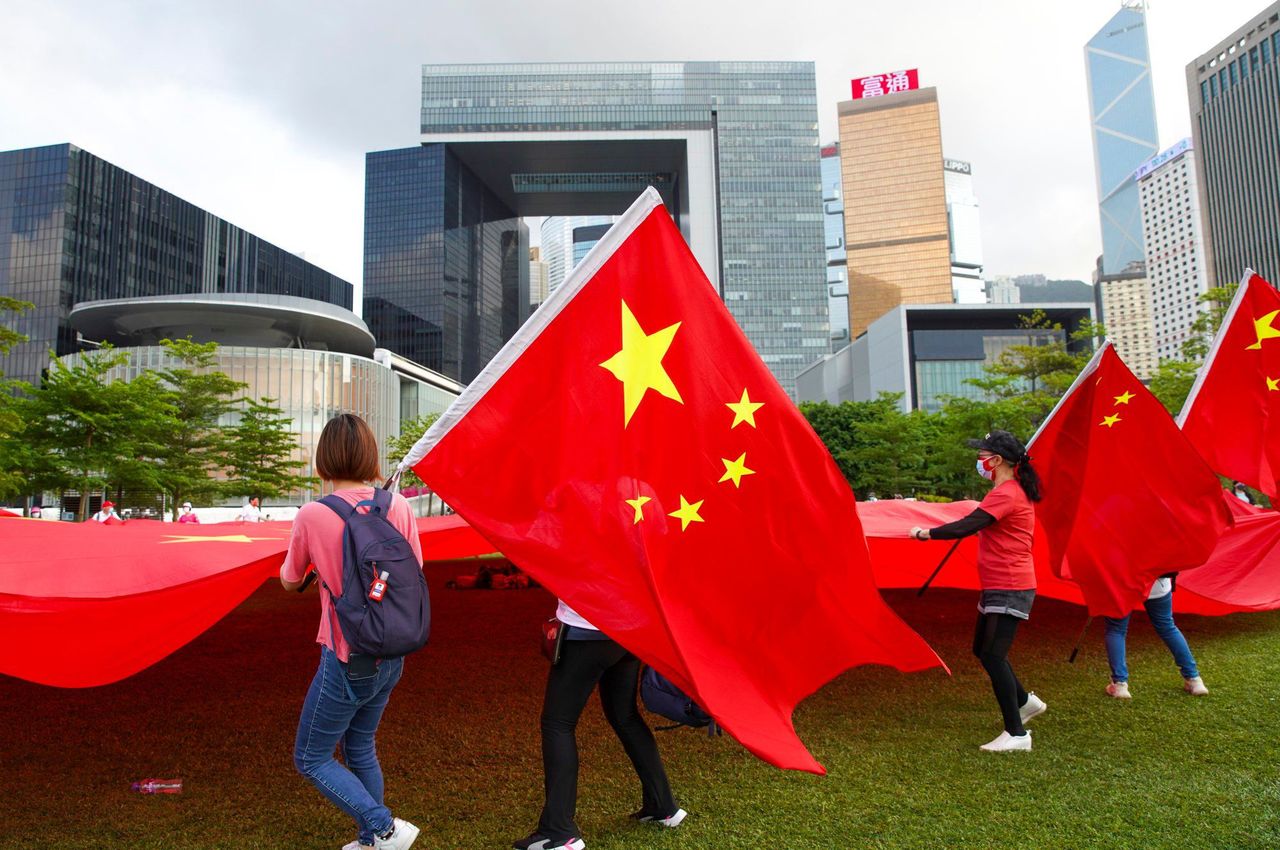Hong Kong News

Hong Kong ‘to strengthen intelligence collection to deal with security threats’
Hong Kong will ramp up efforts to tackle “underlying security threats” by strengthening law enforcement and intelligence collection, as well as carry out “comprehensive” preparations for drafting a home-made national security law, the city’s leader has said.
Addressing a security forum on Wednesday, Chief Executive John Lee Ka-chiu said greater effort needed to be devoted to national security education even after the city had returned to stability and prosperity following the implementation of the Beijing-imposed national security law two years ago.
“There are still underlying national security threats from different fronts,” Lee said. “Dissemination of wrongful messages and slanderous accusations can still be seen at home and abroad. I must stress that attempts to glorify violence and weaken the rule of law have no place in any law-abiding city.
“Hong Kong is no exception, and we will do everything we can to ensure such actions do not tarnish our hard-earned restoration of law and order.”
 Residents display the national flag during a rally last year in support of Beijing’s overhaul of Hong Kong’s electoral system.
Residents display the national flag during a rally last year in support of Beijing’s overhaul of Hong Kong’s electoral system.
At the forum, called “Towards a fairer and safer world”, Lee pledged to enhance law enforcement and intelligence collection to build “a strong foundation” for security in the city.
“We will step up efforts in gathering and analysing intelligence related to national security and counterterrorism, in particular, online information and counter-spying intelligence,” he said.
The administration would also undertake comprehensive work to fulfill its responsibilities under Article 23 of the Basic Law, the city’s mini-constitution, he said. The article requires legislators pass a national security law prohibiting acts of treason, secession, sedition, subversion against the central government and theft of state secrets, as well as banning political organisations or bodies from establishing ties with overseas counterparts.
The national security law that Beijing imposed in June 2020 following anti-government protests bans secession, subversion, terrorism and collusion with foreign forces.
Lee said departments would carry out thorough research to devise “pragmatic”, forward-looking solutions to national security threats. Authorities would look into educating the very young on the correct understanding of the country and the existing national security law, he said, as such awareness would “greatly enhance Hong Kong people’s resilience against instigation or incitement by people, organisations or countries with ulterior motives”.
Schools would also be encouraged to review their curricula and organise more national education activities, he told the forum, which was organised by Friday Culture, a company, and the pro-Beijing Hong Kong Coalition.
Lee further pledged the government would “robustly react to wrong or misleading information” about the city’s affairs and tell the “good stories of Hong Kong”.
“Later this month, I will be travelling to Bangkok to attend the Apec Economic Leaders’ Meeting,” he said. “I will surely be telling the world how good Hong Kong is and how Asia’s world city is back on stage again,”
Loopholes in Hong Kong’s system had been exploited by elements seeking to sabotage the “one country, two systems” governing principle, he argued, pointing to the Occupy movement in 2014, the Mong Kok riots in 2016 and the months-long anti-government protests in 2019.
“They threatened our country’s sovereignty and security and defied the authorities of the central people’s government and the Basic Law,” Lee said.
Stability was only restored when the central government intervened and imposed the national security law, followed by its overhaul of the city’s electoral system, he maintained.
Under Beijing’s changes, a vetting committee decides if candidates for the Legislative Council are sufficiently patriotic, a litmus test that members of the opposition camp claimed was aimed at sidelining dissenting voices.
During a panel discussion, lawmaker Regina Ip Lau Suk-yee, who also serves as convenor of the administration’s key decision-making Executive Council, said the revamped Legco, now run by the pro-establishment camp, was more efficient than in the past. Describing the overhaul as a “democratic backslide” or “illiberal” was unfair, she added.
“I think it is simply wrong to divide the world into the so-called liberal and illiberal camps,” she said. “We have enacted many important legislations … we are making progress in producing more land and housing for the people.”
Ip also questioned why Britain introduced greater democracy in Legco only in the years leading up to the handover in 1997, arguing the political reforms had posed a challenge to the central government’s authority over the city.
“And then we experimented with ‘democracy’ for 25 years … And what happened? The legislature became dysfunctional, extremely chaotic and at times even violent. So the central government had to help us to reform our system,” she said.
The central government’s overhaul expanded the number of Legco seats from 70 to 90, while cutting the number of directly elected members from 35 to 20. The Election Committee, which votes for the chief executive and is heavily pro-Beijing, was put in charge of 40 seats, while the remaining 30 are decided by trade-based functional constituencies.
Ip said the first step towards a fairer and safer world would involve Western countries allowing room for other nations to participate in global affairs, such as climate change.
“Whether it’s China, India, Indonesia, or Egypt, to have a seat at the top table, to have the opportunity to take part in the making of rules, regulations, and standards,” she said.
“And I hope the Western media will cooperate by giving us a voice, to make sure that our voices are reported accurately. I won’t ask for fairness, but accuracy is very important.”











